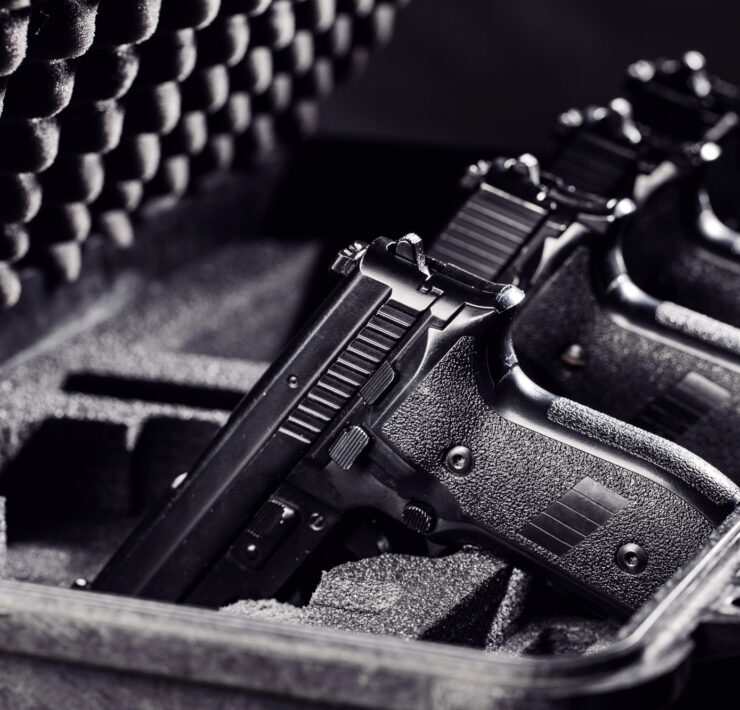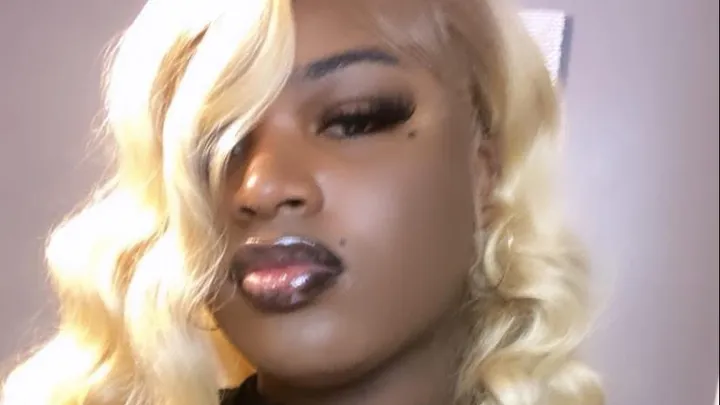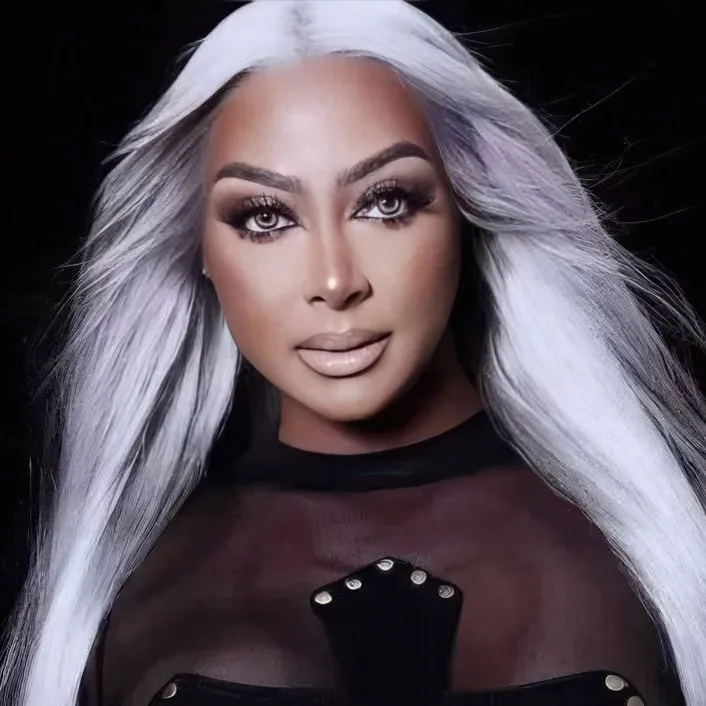A Chat with Anthony Meindl on ‘Where We Go From Here’
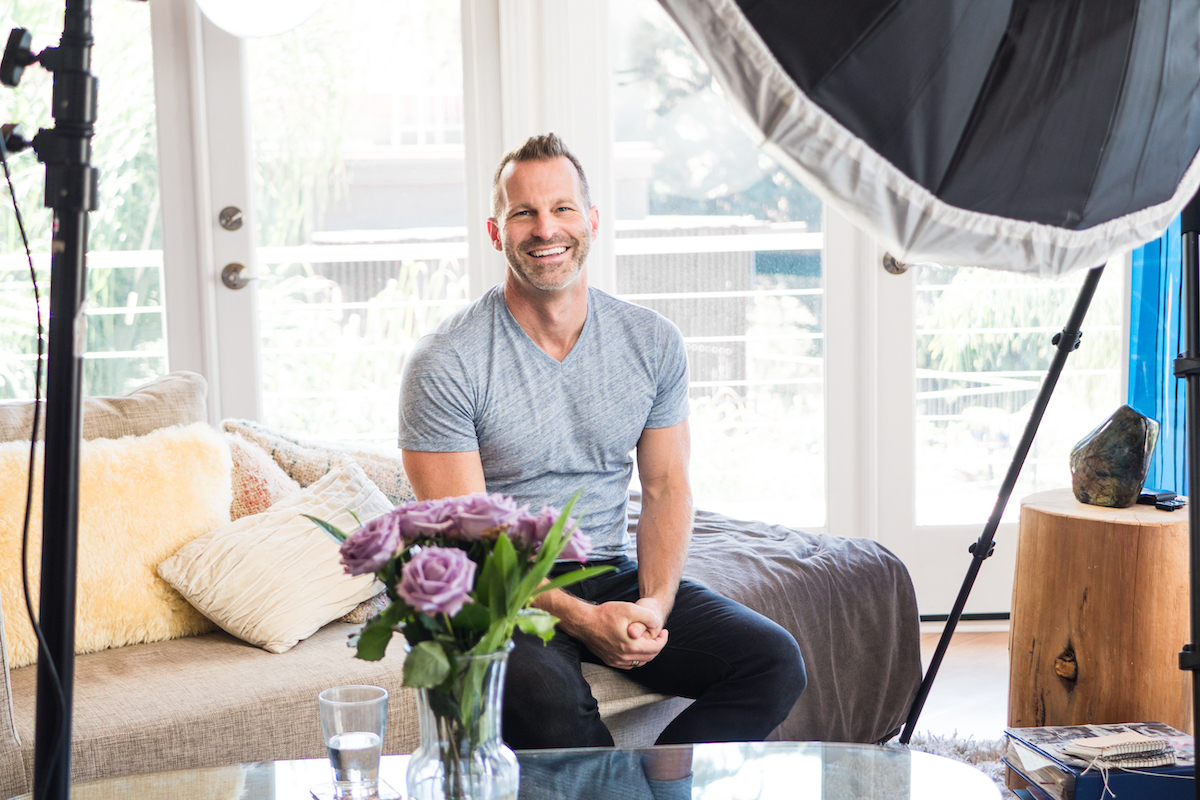
Denny Patterson is a St. Louis-based entertainment and lifestyle journalist…
Starting to run out of things to watch while stuck in quarantine? Don’t worry, we have another suggestion for you. No stranger to the film industry, Anthony Meindl is an award-winning director, writer, actor, acting coach, entrepreneur, author, and inspirational speaker whose work has received critical acclaim for years.
Making its streaming debut, his latest film, Where We Go From Here, is now available on Hulu for your viewing pleasure. Exploring three different, intertwining stories about love and hate in Paris, Binghampton and Orlando, Where We Go From Here is an impactful drama that has earned awards and accolades abound.
In addition to writing and directing, Meindl also stars in the film as hot muscle daddy Ricky. OUT FRONT had the pleasure of chatting more with Meindl about the film, the impact it has made on audiences, and why he chose to tackle the topic of gun violence.
Hi, Anthony! Thank you for taking the time to chat with me about your latest film, Where We Go From Here, and congrats on making your Hulu streaming debut!
Thanks, it’s super exciting! I also found out we sold the movie to a whole bunch of international territories like all over Scandinavia, Germany, Israel, Latin America, and Spain. I am super excited that it’s getting out there.
That’s awesome. Without giving too much away, can you tell us more about the film?
I think how we framed it, it’s three love stories in a modern age, and each story sort of depicts different relationships in different stage of the couples being together and how you sort of navigate different phrases of our lives with someone. Then they are all sort of affected under this umbrella of violence.
This film covers school shootings, big event shootings, and the Pulse Nightclub shooting, correct?
I never thought about it that way when I set out to write it. I always kind of worked from, I think micro, like the personal and then the personal is also reflected in the universal. So, it might be by coincidence that’s how you saw it. I just kind of saw personal stories that were affected by gun violence and, you know, it can happen anywhere. From a school to a supermarket.
How challenging or difficult was it to recreate and film tragic incidents like these?Because I fictionalized them, the actual violence and the actual incidents are really only in the last five minutes of the movie. The other 130 minutes of the movie is really about love and navigating these challenging aspects of relationships.
So, it was hard because it’s definitely triggering, and it’s a real issue. We went to Paris and sort of re-shot a sort of shot-by-shot; we re-purposed the Bataclan shootings. There was a video that had gone viral after the shooting at the Bataclan outside, and we kind of recreated that sequence from that viral video shot-by-shot. You know, some of it was really intense.
Why did you want to make a film that tackles gun violence?
I am interested in pieces that are kind of a reflection of where we are in society right now. I always like to think that, you know, my belief is, where a society is is kind of a reflection of how violent they are. To me, it’s mirroring back where our consciousness is and where our awareness is. I think I just wanted to tell honest stories about things.
I think everybody has been affected in some form or another by gun violence, and hopefully nobody who is reading this has, but maybe you or they know somebody who knows somebody who has. I think it’s just part of navigating through this world, and this is sort of what it’s like to live in 2020 America. And not just America. If we’re going to get into the political aspect of our current administration, how that is kind of sweeping across Europe, we’re seeing a greater intolerance against immigrants and people of color. So, I think it’s really topical.
Some people believe that gun violence is more prevalent in the LGBTQ community. What is your opinion on that?
Wow, I have not ever really read that statistic. I mean, I do think deaths of trans people are one of the highest acts of violence perpetrated against a group of citizens. So, maybe they are correlating the high assault incidents against trans people that often end tragically.
Like, there was a woman who lost her life in Puerto Rico not too long ago. She was described by people who were transphobic as a guy wearing a dress. She identified as a woman, and she was a woman. So, I can’t speak to those statistics because I would have to see where they are referencing them, but I do think that’s probably what people are talking about.
Most likely. Now, in addition to writing and directing Where We Go From Here, you also play Ricky, a hot muscle daddy.
[Laughs]
Every article I have read labels the character that way!
Oh my God. Thank you, Denny, for that.
Of course [laughs]. What was your inspiration for the role, and how did you prepare yourself for it?
Oh my God, that is hilarious. I’m going to have to Instagram story that you just called me a hot muscle daddy [laughs]. Most of the actors in the movie are people that I have taught. I have acting studios all over the world, and I have had the good fortune of working with some incredible people.
I write, and I direct, and I teach, but I can also act. When we were casting, the casting director just asked me, like, well, why don’t you play this role? I wasn’t planning on doing it, and then I just thought, okay, I guess I am a hot muscle daddy, whatever [laughs].
My preparation for it, even though all those stories are fictional and they end in gun violence, in other ways, the actual personal stories within them and of each character are kind of reflections of my own life, like my challenges in relationships and what does it mean to be single or married, subscribing to heteronormative rules. So, I guess it was just a really interesting exploration.
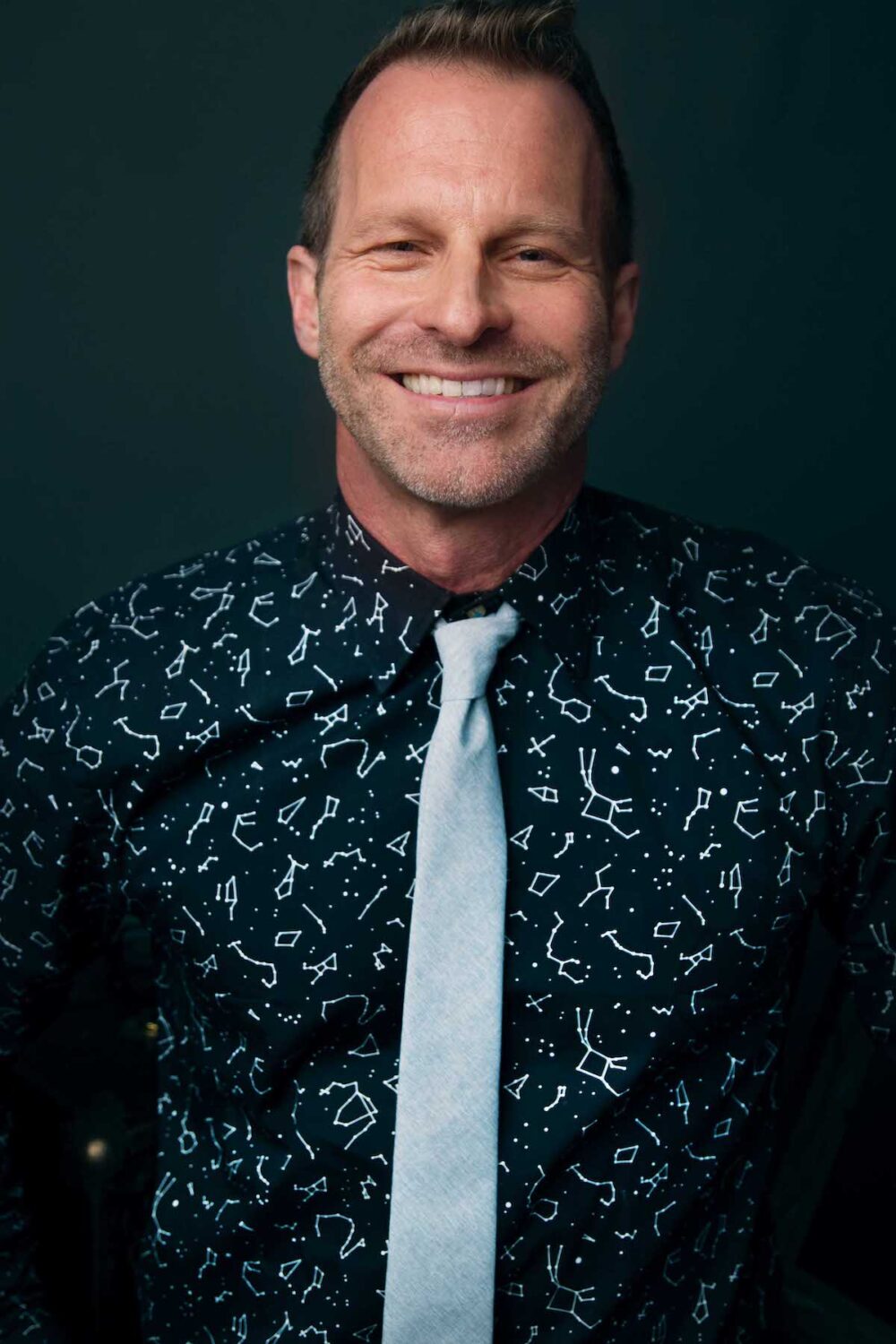
I would like to ask you about the Pulse Nightclub shooting. I assume you chose to cover that incident because it is the most significant massacre ever within the LGBTQ community. Do you remember what you were doing when you first heard about the shooting, and did you know anyone who was there?
Thankfully, I did not know anybody who was affected by it, but I do have friends in Florida who knew people, and because of this movie, I have met people who had friends there. The day that tragedy occurred, it was Gay Pride here in L.A. I woke up to the news, and I was just so devastated by what I was watching on the news, I couldn’t go celebrate.
Instead, I started writing. I started writing my feelings about anger and confusion, and why are we not doing better? Why is the government not doing better in protecting? You know, that’s their job. To protect its citizens. I was trying to write out my feelings about it, and I’m not anti-gun. My dad, we grew up in the Midwest, he went hunting and still has his rifles. I just don’t understand why somebody needs an automatic assault weapon. It’s common sense, that’s all. So, I wrote all of my thoughts about that into the script.
Have you ever lost someone to gun violence?
I have not, thankfully.
What would you do to help someone who has?
I couldn’t give advice, but I could just advocate. Access to social services are being flashed everywhere. I think everything is sort of connected culturally. Violence and culture are connected to our inability to access healthcare, and healthcare is connected to mental health, and mental health is connected to the pharmaceutical company. I can go on and on.
The systems are really broken, and it’s not just one system. I think all the systems are interconnected in a way that are running efficiently. So, I feel like to have some sort of resource where you could talk to a support group or talk to a therapist or talk to a grief counselor. It is a major trauma that one has experienced, so I think you have to talk with somebody who is a professional.
Working with actors, I feel like a lot of the work that we are doing is really helping people work through traumatic experiences in their lives and using it to tell a story, but I do feel like the only way to heal through like this is accessing, talking about it, and expressing it. I think we live in a culture sometimes that’s all about like, I’m fine, but we are walking around with holes in our hearts.
Once the film wrapped up, what kind of impact did it personally leave on you and the other cast members?
I think that would be a great question to ask the cast members. They have all said it was a moving experience, and they have all seen the movie and have really been inspired by it. All those actors are incredible in it and wanting to use it as a call to arms. It’s a social justice piece.
I don’t want people to get the wrong message because it’s also funny. Yes, the last few minutes of the story where all the stories culminate is quite upsetting and distressing, but again, the first hour is about relationships and how we can relate to them. When I’ve been in screenings and hearing people laugh really hard about stuff because they can relate and people coming up to me and saying oh, that’s me and my wife. That’s me and my husband. It means a lot.
And what kind of impact do you hope the film makes overall?
It’s been a very up-and-down road for me. I think guns are so polarizing in this culture, and they’re so triggering, for the lack of a better word, because any kind of conversation about guns immediately gets tied up in Second Amendment rights.
I’m not making a story about taking people’s right away; I’m making a story about empathy and compassion, about marginalizing other people and about the kind of phobias that exist. I am hoping to create a dialogue. When we’ve had screenings and people, there’s usually a Q&A; they ask me questions about it, and the questions that they are asking are so sincere and thought-provoking. If the movie continues to get seen my people and it stimulates a different way of thinking or changes their ideas about stuff, that’s a great thing.
It sounds like the film has been received very well by audiences. You even set up screenings for Moms Demand Action and other gun violence adjacent non-profits, right?
Yes. I found it to be really powerful. We had screenings in Chicago where you can hear people weeping audibly, but I’m also feeling very inspired by what it takes to tell these kinds of stories. I’m not brave in telling the story. Brave people are people who are, you know, legislators out on the front lines trying to make a change, or parents who lost one of their children at Sandy Hook Elementary who are still out there fighting for gun reform.
I think those people are the heroes. I’m just trying to, like I said, show a slice of human life of where we are right now. It’s titled Where We Go From Here, and I feel that way about a lot of things in life.
What can we do to keep the conversation going?
Always, I think the best way is people have to vote. You can write your congressperson. Vote your conscience; vote for people who are not scared to stand up against the NRA and wants to pass common sense gun laws. We just have to do our due diligence. I sometimes think people feel like all of these challenges we’re up against feel so overwhelming, that we then resort to do nothing. If you feel that way, at the very least, give money to a cause that you feel is moving in the right direction.
What’s next for you? What upcoming projects should we be on the lookout for?
I have another movie. It’s not out yet, and I’m seeing where it’s landing. It’s called Some of Us, and it, too, kind of tackles a lot of social issues, but again, I think in a humorous way. That’s completed, and it was on the festival circuit this past year, and now we are going to see where we should go with it.
Then I have another movie that we are very close to getting all the funding. I am hoping to be in production soon, and it also deals with human rights, social rights. That is kind of what my mojo is about.
What's Your Reaction?
Denny Patterson is a St. Louis-based entertainment and lifestyle journalist who serves as OFM's Celebrity Correspondent. Outside of writing, some of his interests include traveling, binge watching TV shows and movies, reading (books and people!), and spending time with his husband and pets. Denny is also the Senior Lifestyle Writer for South Florida's OutClique Magazine and a contributing writer for Instinct Magazine. Connect with him on Instagram: @dennyp777.



